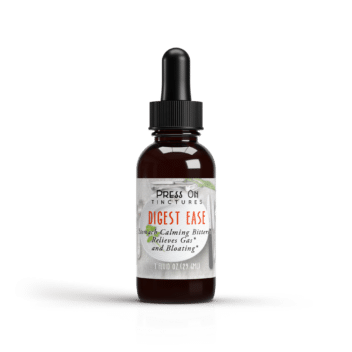
Acacia Gum in Herbal Medicine
Acacia Gum in Herbal Medicine
Acacia gum, also known as gum arabic, is a natural substance revered for its health-enhancing properties. Extracted from the sap of acacia trees, this versatile ingredient has found its way into various herbal remedies over the centuries. Its applications are vast, ranging from digestive support to immune system enhancement. In this article, we’ll delve deeper into the multifaceted role of acacia gum in herbal medicine and its potential benefits for your health and wellness journey.
Historical Significance
The use of acacia gum dates back to ancient civilizations, where it was prized for its medicinal properties. Cultures such as the Egyptians and the Greeks harnessed its benefits, incorporating it into their traditional healing practices. Its reputation as a natural remedy has endured through the ages, continuing to be a staple in modern herbal medicine.
Scientific Research
Recent scientific studies have started to unravel the complex components of acacia gum and their health benefits. Researchers have identified its unique polysaccharide composition, which contributes to its ability to support bodily functions. Ongoing research continues to explore its potential applications, broadening our understanding of this remarkable natural resource.
Modern Applications
In today’s health-conscious world, acacia gum has gained popularity as a natural supplement and ingredient. Its applications extend beyond traditional medicine, finding a place in dietary supplements, skincare products, and even the food industry. Its versatility and efficacy have made it a sought-after component in both natural health products and culinary innovations.
What is Acacia Gum?
Acacia gum is a soluble fiber derived from the sap of acacia trees, predominantly found in Africa and certain regions of Asia. Its composition of complex polysaccharides makes it a valuable asset in herbal medicine. This natural fiber supports various bodily functions, contributing to improved health and well-being.
Harvesting Techniques
The process of harvesting acacia gum is a meticulous one, involving skilled techniques to ensure the highest quality product. Small incisions are made in the bark of acacia trees, allowing the sap to exude and dry naturally in the air. This method not only preserves the tree but also ensures the purity and potency of the gum collected.
Processing and Refinement
Once harvested, the sap undergoes a series of refinement processes to transform it into a usable product. It is cleaned, dried, and ground into a fine powder or granules. This processing ensures that the acacia gum retains its natural properties, making it suitable for various applications in herbal medicine and beyond.
Global Distribution
Acacia gum is a globally traded commodity, with significant exportation from African countries such as Sudan and Nigeria. Its widespread distribution has made it accessible to consumers worldwide, enhancing its availability as a natural health supplement. This global reach underscores its importance in both traditional and contemporary health practices.
Health Benefits of Acacia Gum
Acacia gum is celebrated for its numerous health benefits, making it a valuable addition to any wellness regimen. Its ability to support gut health, aid digestion, and bolster the immune system are among its most recognized attributes. Let’s explore these benefits in greater detail.
Acacia Gum and Gut Health
Acacia gum acts as a prebiotic, nourishing the beneficial bacteria in the gut and promoting a healthy microbiome. This balance is crucial for optimal digestion and nutrient absorption. By fostering a thriving gut flora, acacia gum helps protect against digestive disorders and enhances overall gastrointestinal health.
Supporting Digestive Health
The digestive benefits of acacia gum extend to the production of short-chain fatty acids (SCFAs) in the colon. These SCFAs play a pivotal role in maintaining the integrity of the intestinal lining and supporting immune function. Regular consumption of acacia gum can help alleviate digestive discomfort and conditions such as constipation and irritable bowel syndrome (IBS).
Immune System Support
Acacia gum is renowned for its immune-boosting properties, attributed to its rich fiber content. By stimulating the production of anti-inflammatory compounds, it aids in reducing systemic inflammation and enhancing immune response. This makes it an effective natural remedy for supporting the body’s defenses against illnesses and infections.
Weight Management Benefits
For those seeking to manage their weight, acacia gum offers a low-calorie, high-fiber solution that promotes satiety and reduces calorie intake. Its ability to curb appetite makes it a useful ally in weight loss efforts. Incorporating acacia gum into a balanced diet can support healthy weight maintenance and improve metabolic health.
Skin Health and Beauty
Beyond internal health, acacia gum is increasingly recognized for its benefits to skin health. Its hydrating properties make it a popular ingredient in skincare products, where it helps maintain skin moisture and elasticity. By promoting skin health from the inside out, acacia gum contributes to a radiant and youthful complexion.
Acacia Gum in Traditional Herbal Medicine
Acacia gum has been an integral part of traditional herbal medicine across various cultures, each recognizing its unique health benefits. From ancient Egypt to indigenous tribes in Africa, its uses have been diverse and impactful.
Ancient Egyptian Remedies
The ancient Egyptians were pioneers in utilizing acacia gum for medicinal purposes. They employed it to treat a variety of ailments, including digestive disorders and skin irritations. Its inclusion in their herbal pharmacopeia highlights its longstanding reputation as a healing agent.
Indigenous African Practices
In African traditional medicine, acacia gum has been used for generations to address a range of health concerns. Its application extends to oral health, where it is used to soothe sore throats and promote dental hygiene. This enduring practice underscores its versatility and effectiveness in natural healing.
Cultural Significance
The cultural significance of acacia gum extends beyond its medicinal uses, symbolizing health and vitality in various societies. Its role in traditional ceremonies and rituals reflects its esteemed status as a natural resource. This cultural reverence continues to influence its use in contemporary herbal practices.
How to Use Acacia Gum in Herbal Medicine
Incorporating acacia gum into your daily routine is simple and can enhance your health and wellness journey. Here are several ways to integrate this natural remedy into your lifestyle.
Herbal Teas and Infusions
Acacia gum can be easily added to your favorite herbal teas and infusions, providing a soothing and health-promoting beverage. Dissolve a small amount of acacia gum powder in hot water along with your preferred herbal blend. This simple preparation method allows you to enjoy its benefits in a warm and comforting drink.
Dietary Supplements
For those seeking convenience, acacia gum is available in supplement form, making it easy to include in your daily regimen. Look for high-quality supplements that contain pure acacia gum to ensure maximum health benefits. Regular supplementation can support digestive health, immune function, and weight management.
Cooking and Baking Applications
Acacia gum’s natural thickening properties make it an excellent addition to cooking and baking. Use it as a stabilizer in gluten-free baked goods, sauces, and dressings to improve texture and consistency. Its neutral flavor allows it to blend seamlessly into a variety of recipes, enhancing their nutritional profile.
Topical Applications
In addition to internal use, acacia gum can be applied topically for skin health benefits. It is often used in homemade skincare formulations to promote hydration and elasticity. By incorporating acacia gum into your skincare routine, you can support your skin’s health and appearance naturally.
Potential Side Effects and Precautions
While acacia gum is generally safe for most people, it’s important to be aware of potential side effects and take necessary precautions. Understanding these considerations can help ensure its safe and effective use.
Possible Side Effects
Some individuals may experience mild digestive discomfort, such as bloating or gas, particularly when consuming large amounts of acacia gum. To minimize these effects, start with a small amount and gradually increase your intake. This approach allows your body to adjust to the added fiber and reduces the likelihood of adverse reactions.
Allergic Reactions
Although rare, allergic reactions to acacia gum can occur, especially in individuals with known allergies to acacia trees. Symptoms may include itching, swelling, or respiratory issues. If you suspect an allergic reaction, discontinue use immediately and consult a healthcare professional for guidance.
Precautions for Specific Populations
Certain populations, such as pregnant or breastfeeding women, should exercise caution when using acacia gum. Consulting with a healthcare provider can provide personalized advice and ensure its safe use. Additionally, those with pre-existing medical conditions or taking medications should seek professional guidance before incorporating acacia gum into their health regimen.
Conclusion
Acacia gum is a remarkable component of herbal medicine, offering a wide array of health benefits from supporting gut health to enhancing the immune system. Its versatility and ease of use make it an excellent addition to natural health practices. By integrating acacia gum into your daily routine, you can tap into its numerous benefits and elevate your overall health and wellbeing. Whether through dietary supplements, herbal teas, or topical applications, acacia gum provides a natural pathway to improved health and vitality.

